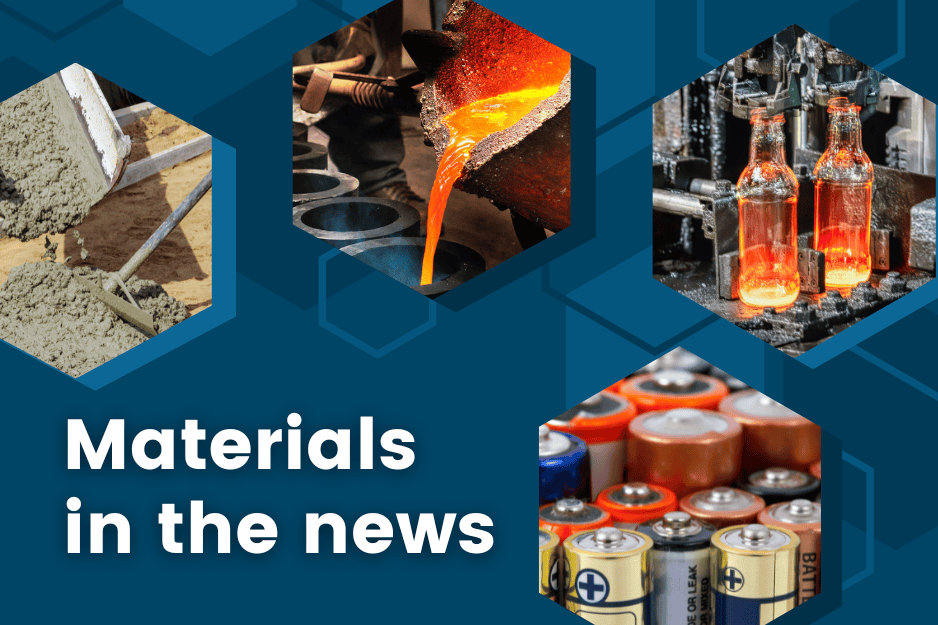
[Images above] Credit: NIST
NANOMATERIALS
Researchers develop the world’s first power-free frequency tuner using nanomaterials
Researchers at University of Oxford and University of Pennsylvania fabricated vibrating nanostrings of a chalcogenide glass (germanium telluride) that resonate at predetermined frequencies. To tune the frequency of these resonators, they switch the atomic structure of the material, which in turn changes the mechanical stiffness of the material itself.
ENERGY
Materials scientists finding solutions to biggest hurdle for solar cell technology
Materials scientists led by University of California, Los Angeles, found a common surface treatment used to remove solar cell defects unintentionally creates a more electron-rich surface—a potential trap for energy-carrying electrons. They overcame this limitation by pairing positively charged ions with negatively charged ones for surface treatments.
ENVIRONMENT
Making green energy greener: Researchers propose method to recycle wind turbine blades
Researchers from Kaunas University of Technology and the Lithuanian Energy Institute proposed a pyrolysis-based method for recycling wind turbine blades.
University of Delaware researchers found a way to improve the ability of catalysts made from metal-metal oxides to convert nonedible plants into renewable fuels, chemicals, and plastics. They pulsed hydrogen gas on and off, which created active sites on the catalyst surface that mimic water, and these active sites then do the chemistry.
MANUFACTURING
Scientists devise new technique to increase chip yield from semiconductor wafer
Scientists from Nanyang Technological University, Singapore and the Korea Institute of Machinery & Materials report that their chemical-free printing technique, when combined with metal-assisted chemical etching, resulted in semiconductor wafers with nanowires that were highly uniform and scalable.
Could we make cars out of petroleum residue?
Researchers at Massachusetts Institute of Technology and Oak Ridge National Laboratory made carbon fibers out of petroleum residue. By carefully modeling the ways bonds form and crosslink between the constituent molecules, they could predict how a given set of processing conditions would affect the resulting fiber properties.
OTHER STORIES
Tiny battery-free devices float in the wind like dandelion seeds
Researchers from the University of Washington took inspiration from dandelion seeds to develop miniature sensor-carrying devices that can be blown by the wind as they tumble toward the ground.
Researchers develop AI tool for discovery and prediction of new rare earth compounds
Researchers from Ames Laboratory and Texas A&M University trained a machine-learning model to assess the stability of new rare-earth compounds. The framework they developed builds on current state-of-the-art methods for experimenting with compounds and understanding chemical instabilities.
New strategy for designing thermoelectric materials
Researchers at the National Institute for Materials Science succeeded in developing a new approach to the design of thermoelectric materials by constructing a database of electronic structure parameters correlated with materials’ thermoelectric conversion properties and by a comprehensive analysis of the database.
Making memory serve correctly: Fixing an inherent problem in next-gen magnetic RAM
Tokyo University of Science researchers came up with a new reading method for spin orbit torque RAM (SOT-RAMs) that can nullify a source of readout disturbance the same researchers identified in 2017.
DOE’s Office of Science now accepting applications for fall 2022 undergraduate internships
Applications are currently being accepted for the fall 2022 term of two undergraduate internship programs offered by the Department of Energy Office of Science: the Science Undergraduate Laboratory Internships program and the Community College Internships program. The application deadline is May 26, 2022, at 5 p.m. Eastern.
Author
Lisa McDonald
CTT Categories
- Weekly Column: “Other materials”
